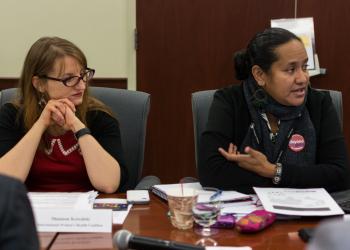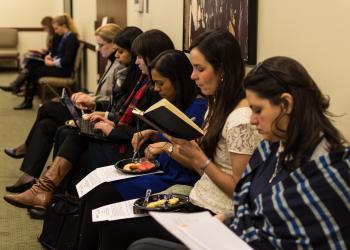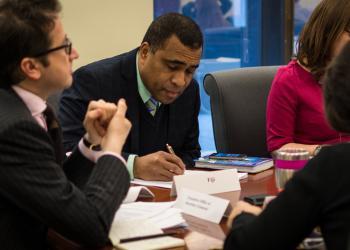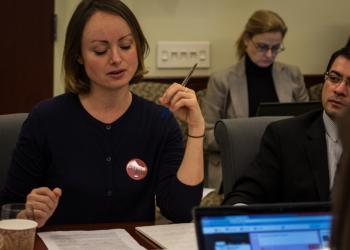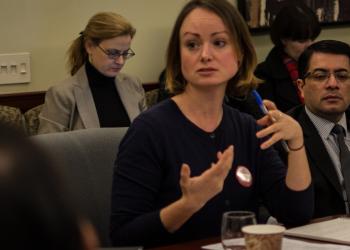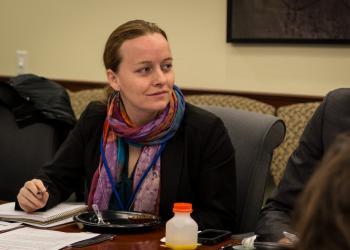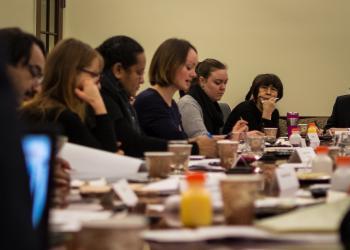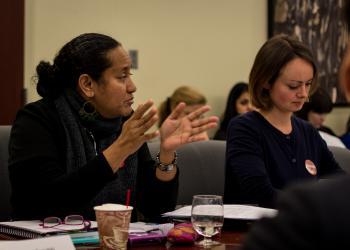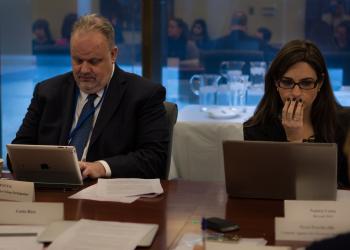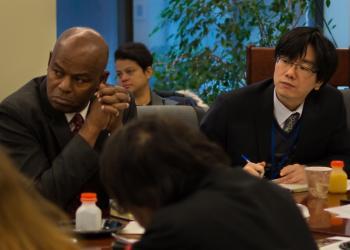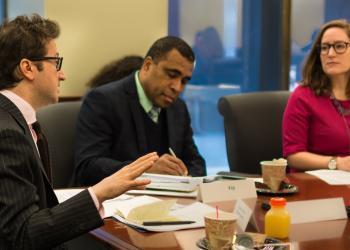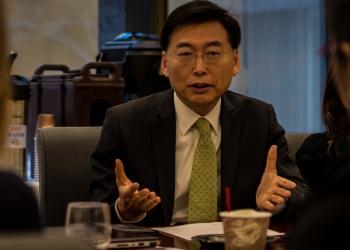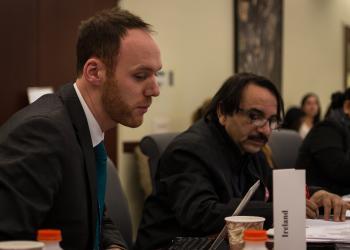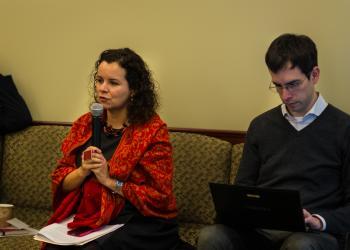Briefing on post-2015 agenda stresses participation of civil society
A briefing today brought together representatives of governments, UN agencies and civil society for an open exchange on the importance of civil society participation in the creation and implementation of proposed new global sustainable development goals.
Organized by Beyond 2015, the International Women’s Health Coalition (IWHC), and the Baha’i International Community, the breakfast dialogue on 15 January 2015 focused on the recent “synthesis” report of UN Secretary General Ban Ki-moon on the post-2015 process.
Representatives of civil society said that while the report is an important contribution, especially in its call for an “ambitious, universal agenda, with equality and equity, participation, people and planet at the core,” it could go further in stressing the importance of human rights, particularly women’s rights, and in identifying means of implementation, particularly how people can participate.
“Our key message is that in order to achieve a fair and just post-2015 development agenda, it must have three “Ps” at its core: ‘participation, people, and planet,’” said Alanieta Vakatale, Beyond 2015’s regional coordinator for the Pacific. “We must have both people sensitive and planet sensitive development.”
Shannon Kowalski, Director of Advocacy and Policy for the IWHC, said a human rights based approach should stress the rights to freedom of expression and the press worldwide. “Unless people feel free to speak, we are not going to be able to achieve the world we want.”
Ms. Kowalski added that Beyond 2015, a campaign involving more than 1,000 organizations worldwide, felt the Secretary General’s report could have gone further in addressing the unpaid care burden on women, better avenues for women’s participation, and the importance of “zero tolerance” for violence against women.
Neva Frecheville, lead policy analyst on the post-2015 development agenda for the Catholic Agency for Overseas Development of England and Wales, said the Secretary General’s report could have been better at framing participation.
“People are treated as passive recipients of aid rather than active agents of implementation,” said Ms. Frecheville. “This risks people not feeling any ownership of the agenda.”
In the exchange that followed their opening comments, a representative of the Secretary General’s office thanked Beyond 2015 for its comments, saying “we need your help in bringing issues (like women’s rights) to the fore.” He noted the report, also, is meant only to synthesize knowledge about the progress so far towards a new set of development goals to replace the Millennium Development Goals (MDGs), which expire in this year.
Several government representatives, who were members of the so-called Open Working Group (OWG) that has put forward a set of 17 Sustainable Development Goals to replace the MDGs, also stressed the importance of civil society participation in the months ahead as the goals are fully negotiated and adopted.
One representative said that there is now agreement among OWG members that the 17 goals will not be renegotiated, since that would open them to dilution, but that much remains to be done in terms of drafting a declaration and also identifying concrete means of implementation for the goals.
The most important thing “we can say to you as civil society is about how you can help us in the process ahead,” said the diplomat.
The meeting was moderated by Mr. Tokbolat, a representative of the Baha’i International Community to the United Nations. He offered these thoughts at the close:
“Because those without a seat at the table have little voice in decisions affecting their lives, participation in the systems and structures of society is an essential prerequisite for social transformation.
“To be anything more than window-dressing though, participation must be substantive and creative. It is not enough for people to be mere beneficiaries of projects, even if they have a voice in certain decisions. They must be far more involved in decision-making processes: identifying problems, devising solutions and approaches, enjoying benefits, and determining criteria for evaluation.
“Participation, however, cannot be equated with empowerment—taking part in flawed systems merely perpetuates existing patterns of injustice. In order to advance the common good, individuals must possess both the capacity to assess the strengths and weaknesses of existing social structures and the freedom to choose between participating in those structures, working to reform them, or endeavoring to build new ones,” said Mr. Tokbolat.
Beyond 2015 has produced a seven page commentary on the Secretary General’s synthesis report, which can be found here.
